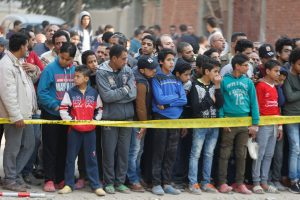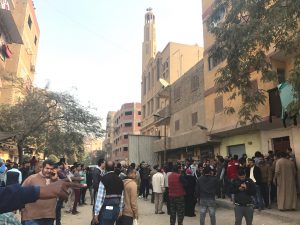
CAIRO (Reuters) – President Abdel Fattah al-Sisi said on Monday Egypt is not conspiring against its neighbors and has no intention to fight, a reference to growing tension with Sudan.
Relations have deteriorated in recent weeks, including over a Sudan-Turkey naval agreement that angered Cairo and an ongoing dispute over a dam Ethiopia is building on the Nile river that runs through all three countries.
In the latest move, Sudan recalled its ambassador to Egypt without saying when he might be back.
“Let’s always look for peace and development, our people need that. They don’t need us arguing and entering conflict,” Sisi said at an inauguration of new projects in the province of Monofeya.
He said Egypt would not interfere in other countries’ affairs. Khartoum has in the past accused Cairo of political meddling while Egypt has accused Sudan of harboring Egyptian Islamists.
“Egypt will not fight its brothers … I’m saying this as a message to our brothers in Sudan,” Sisi said.
Khartoum and Ankara agreed last month that Turkey would rebuild a ruined Ottoman port city on Sudan’s Red Sea coast and construct a dock to maintain civilian and military vessels.
Egyptian officials reacted with suspicion about what they see as Turkey’s plans to expand its influence in the region.
Separately, Ethiopia is building a hydroelectric dam on the Nile which Cairo fears will restrict the waters flowing down from Ethiopia’s highlands and through Sudan to Egypt.
Ethiopia, which wants to become Africa’s biggest power exporter, says it will have no such impact.
Egypt believes Sudan is leaning toward the Ethiopian position in the dispute.
The Ethiopian foreign minister, who held talks with his Sudanese counterpart on Sunday, is expected to visit Cairo later this week for negotiations after multiple delays.
(Reporting by Mohamed El Sherif; Writing by Arwa Gaballa; Editing by Peter Graff)



